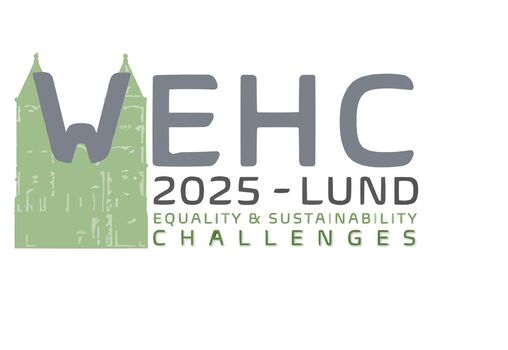
Welcome to the homepage of the International Economic History Association (IEHA).
The IEHA is an organization composed of national, regional and international associations in the field of economic history, broadly defined, and other related disciplines. It currently has 45 member organizations from almost 40 countries around the world. Today the seat of the Association is in Utrecht, the Netherlands.
The aims of the IEHA are to promote the development and diffusion of economic history worldwide, through the organization of a World Congress every three years, amongst other activities. Originally founded in 1960, the IEHA played a prominent role during the Cold War era in uniting scholars from across Europe, the Soviet Union, and North America, along with smaller numbers from Japan, Australia and New Zealand, and a wide range of developing countries.
In recent decades, the IEHA has evolved as the global forum for economic historians worldwide, with each Congress attracting over 1,000 participants, and with increasing participation from the developing world. The IEHA held a World Congress in Latin America for the first time in 2002 at Buenos Aires, Argentina, and in Africa for the first time in 2012 at Stellenbosch, South Africa. Another recent World Congress took place for the first time in Asia, at Kyoto, Japan, 3-7 August 2015, and in Boston, Massachusetts in 2018.. The latest one was held in Paris, France in 2022 .
The IEHA is an organization composed of national, regional and international associations in the field of economic history, broadly defined, and other related disciplines. It currently has 45 member organizations from almost 40 countries around the world. Today the seat of the Association is in Utrecht, the Netherlands.
The aims of the IEHA are to promote the development and diffusion of economic history worldwide, through the organization of a World Congress every three years, amongst other activities. Originally founded in 1960, the IEHA played a prominent role during the Cold War era in uniting scholars from across Europe, the Soviet Union, and North America, along with smaller numbers from Japan, Australia and New Zealand, and a wide range of developing countries.
In recent decades, the IEHA has evolved as the global forum for economic historians worldwide, with each Congress attracting over 1,000 participants, and with increasing participation from the developing world. The IEHA held a World Congress in Latin America for the first time in 2002 at Buenos Aires, Argentina, and in Africa for the first time in 2012 at Stellenbosch, South Africa. Another recent World Congress took place for the first time in Asia, at Kyoto, Japan, 3-7 August 2015, and in Boston, Massachusetts in 2018.. The latest one was held in Paris, France in 2022 .
Call for Sessions - World Economic History Congress 2025

The deadline for submitting sessions has been extended to March 15th, 2024. Make sure you have submitted your proposals by that date.
Sessions proposals do not need to include complete lists of speakers at the time of submission. Proposals need to include a clear theme and indicative list of participants, but as in previous years the list of speakers can be finalised closer to the Congress.
While there will only be ONE main call for sessions during this Congress owing to the impact of the pandemic on planning, the Executive Committee may leave room on the schedule for late breaking sessions on topics of current relevance. This will be assessed by the EC in the 6-9 months leading up to the Congress.
The 20th World Economic History Congress will convene from 28 July – 1 August 2025 in Lund, Sweden. The theme for the Congress is "Equality and Sustainability Challenges", which highlights some of the central issues facing humanity today and also connects to a broad and diverse range of historical problems. To address both the challenges and to find insights from the historical record for that endeavour, a range of perspectives will be necessary.
The IEHA has a particularly strong desire to attract sessions related to this theme. However, submissions are welcome on the economic and social histories of all places and periods, and on the exploration of varied sources and methods, and on the theory and uses of economic history itself. We also invite members to employ and analyse diverse strategies for representing the past.
Sessions may be proposed by any member of the international economic history community, whatever their institutional affiliation or status, as well as by scholars in related disciplines. Given the diversity of our membership, we will consider any submission that advances the study, teaching and public presentation of economic history. We welcome panel proposals that highlight scholarship emerging from economic history, business history, financial history, demographic history, environmental history, global and world history, social history, urban and agrarian history, gender studies, material culture, methodological approaches to historical research, history of economics and economic thought, science and technology studies, and other related fields.
The programme of the Lund Congress will be organised on the same principles as previous Congresses. The 5-day Congress will have approximately 180 sessions, with each day divided into time blocks of 90 minutes each (two before lunch and two after lunch). As in the past, it will be possible to combine two sessions into larger coherent units.
The session proposals should contain:• Name, title, affiliation, and contact information of the session organiser• Possible co-organisers (optional)• Title of the session• Description of the session’s aim, contribution, and relevance (max 5,000 characters with blanks)• Potential researchers (and their affiliations) to invite to the session or those already secured
The call for sessions will close on March 15, 2024. Sessions should be submitted via the Congress website at https://wehc2025.com/. Please note that unlike in past years, there will be ONLY ONE call for sessions. Decisions will be finalised in June 2024.